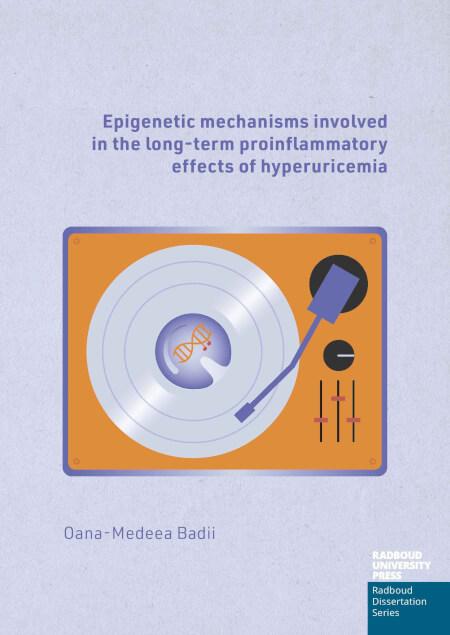Epigenetic mechanisms involved in the long-term proinflammatory effects of hyperuricemia
Keywords:
hyperuricemia, goutSynopsis
Uric acid, a product of purine breakdown, plays important roles in the body and can contribute to health issues. Elevated urate levels in the bloodstream (hyperuricemia) are associated with gout, as well as cardiovascular and metabolic diseases. Beyond its role in crystal-induced inflammation, soluble urate is emerging as a modulator of immune responses. This thesis investigates whether soluble urate can prime innate immune cells, inducing epigenetic and transcriptional changes that promote inflammation. Findings show urate priming enhances IL-1β production while suppressing IL-1 receptor antagonist (anti-inflammatory) levels, effects associated with DNA methylation and histone modifications. SOCS3 (regulator of cytokine signaling) and type I interferon pathways were identified as key mediators of urate-induced inflammation. Examining cytokine production differences between sexes, reveals stronger inflammatory responses in male gout patients and enhanced in vitro cytokine production in females. The thesis concludes by discussing trained immunity as a mechanism linking soluble urate to persistent inflammation.

Published
Series
Categories
License

This work is licensed under a Creative Commons Attribution-NonCommercial-NoDerivatives 4.0 International License.

